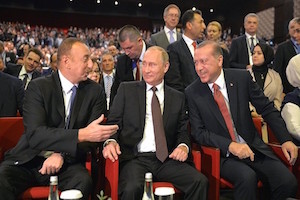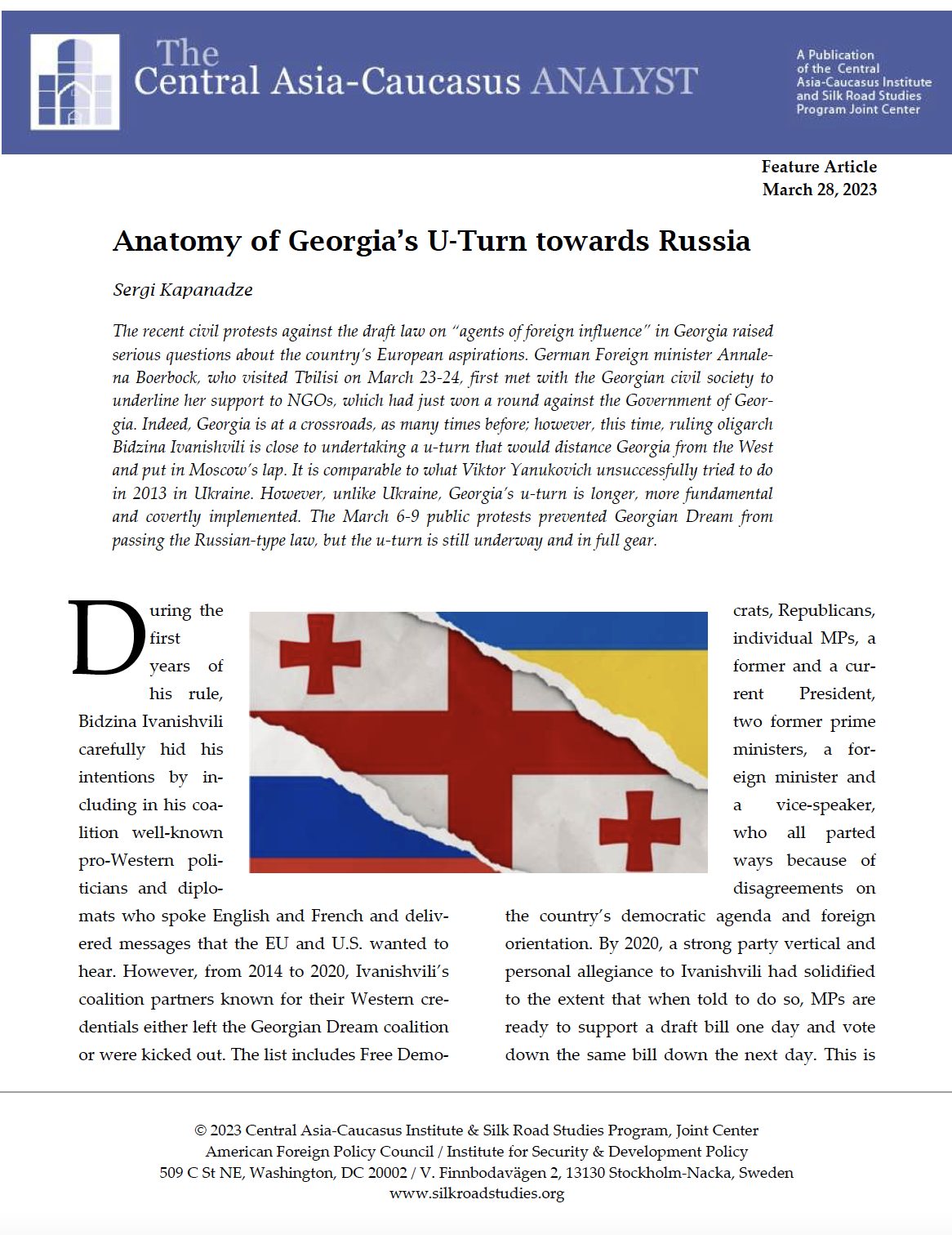Anatomy of Georgia’s U-Turn towards Russia
By Sergi Kapanadze
March 28, 2022
Iran and Russia: from “Oil-for-Goods Swap” to “Oil-Gas Swap”
By Vali Kaleji
January 17, 2023
Recent agreements between Tehran and Moscow on an oil-gas swap is another sign of Russia’s turn towards Asian oil and gas markets and closer relations between the two countries in light of Russia’s war in Ukraine. If these agreements are finalized, Iran will import 20 billion cubic meters (bcm) of gas from Russia annually. Since Iran and Russia do not have a common land border, gas must be swapped from two routes, namely Kazakhstan and Turkmenistan in Central Asia and Azerbaijan in the Caucasus.
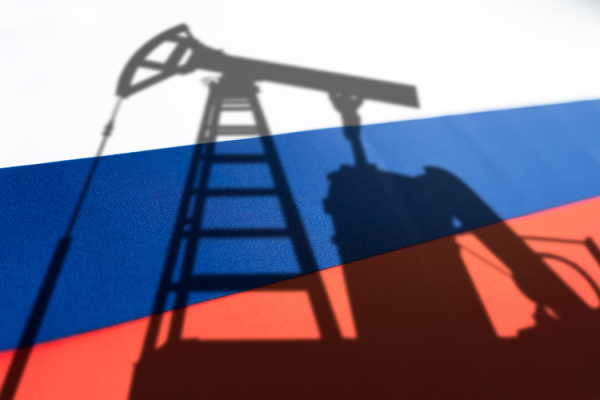
Azerbaijan's Economy Takes a Double Blow
By Natalia Konarzewska
June 16, 2020, the CACI Analyst
The collapse of oil prices and oil demand along with the economic shutdown imposed to fight the coronavirus pandemic are putting a strain on Azerbaijan’s economy. The upheaval on the global oil market has exposed fragilities in Azerbaijan’s banking system as four of its banks were recently put under temporary administration of the central bank and others had their capital requirements relaxed. The government has introduced economic and social packages to mitigate the consequences of the crisis; however, growth forecasts in 2020 remain pessimistic.
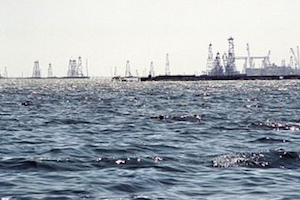
Central Asia Caught in Economic Perfect Storm amid Oil Price Collapse and COVID-19 Pandemic
By Azad Garibov
May 12, 2020, the CACI Analyst
The collapse of oil prices and outbreak of a pandemic seems to catch Central Asia in an economic perfect storm. Some regional energy exporters will suffer directly from low oil prices and the pandemic; others will face adverse economic consequences more indirectly, in the form of reduced gas demand in China or decreased remittances sent by migrant workers.
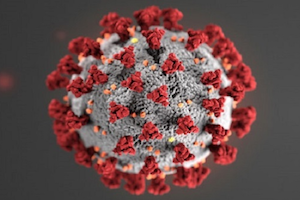
Azerbaijan Supports Extension of OPEC Oil Output Freeze Agreement
By Natalia Konarzewska
July 31, 2017, the CACI Analyst
In late May, the member states of the Organization of the Petroleum Exporting Countries (OPEC) and several crude producers outside the cartel decided to extend the cuts in oil production by another nine months. This is a follow-up of agreement on the oil production freeze, introduced in November last year by major OPEC crude producers and several countries outside the organization to stabilize the plummeting oil prices and rebalance supply and demand in the crude market. Azerbaijan, which is not an OPEC member, decided to join the freeze deal and its May extension to break this downward spiral and mitigate the negative effects of the oil price on its budget revenues.
